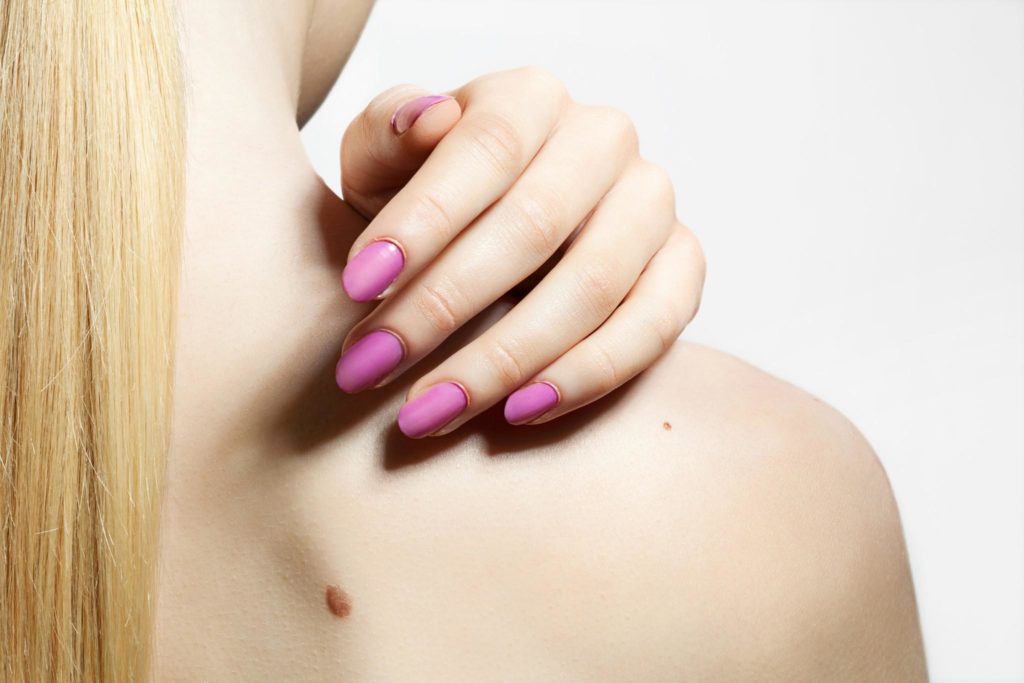
If skin cancer is a concern for you, or you are concerned about the health of your loved ones, there are a number of things you can do. Early detection is essential when it comes to skin cancers such as melanoma, basal cell carcinoma and squamous cell carcinoma, so arming yourself with knowledge is one of the strongest tools you can have to help reduce the chance of developing the condition.
Are you at high risk of developing skin cancer? Being aware of the risk factors, some of which I have highlighted below, means you will be more alert to your chances of developing the disease.
Having a fair skin tone such as the typical Irish complexion of fair or red hair, pale skin and light coloured eyes, means there is less pigment or melanin in your skin, which can make you susceptible to skin cancers.
It is vital that you remain sun smart. If you have been a sun worshipper or had severe sunburn as a child, you might be at risk of developing skin cancer later in life. Similarly, using sun beds now or in the past can increase your risk too.
Do you have an abundance of moles? If you have lots of moles or have abnormal moles, which look irregular and are larger than regular moles, you should monitor them for any changes and/or get them checked by your GP.
If there is a history of cancer in your family. If a parent or sibling had the disease you may be more at risk of developing it yourself.
As I mentioned above, early detection is key when it comes to treating skin cancers. Performing regular skin checks on you and your family at home can reveal unusual moles, marks, lesions or irregularities much sooner. Get to know what is normal for you and check your skin, all over, regularly.
Keep in mind that melanomas can occur in places that don’t see the sun, so don’t just check immediately visible places. It’s also good to remember the ABCDE checklist: Asymmetry, Border Irregularity, Colour Variegation, Diameter, Evolving or Extra Features.
If you are concerned about moles, marks or lesions, your GP is usually your first contact to address your concerns. Additionally, you can also attend a skin cancer screening or skin check clinic. In my own practice I work well with Dr Steve Karagiannis, an experienced GP with an interest in early skin cancer detection and treatments. Dr Karagiannis runs a number of skin check clinics in Dublin and you can find more information on the service here: www.skincheck.ie.
If you are concerned about your skin or that of a loved one, arrange a consultation with me at my clinic, and download our free guide to sun protection:
Download Mr Chan's Guide to Proper Sunscreen Use

If skin cancer is a concern for you, or you are concerned about the health of your loved ones, there are a number of things you can do. Early detection is essential when it comes to skin cancers such as melanoma, basal cell carcinoma and squamous cell carcinoma, so arming yourself with knowledge is one of the strongest tools you can have to help reduce the chance of developing the condition.
Are you at high risk of developing skin cancer? Being aware of the risk factors, some of which I have highlighted below, means you will be more alert to your chances of developing the disease.
Having a fair skin tone such as the typical Irish complexion of fair or red hair, pale skin and light coloured eyes, means there is less pigment or melanin in your skin, which can make you susceptible to skin cancers.
It is vital that you remain sun smart. If you have been a sun worshipper or had severe sunburn as a child, you might be at risk of developing skin cancer later in life. Similarly, using sun beds now or in the past can increase your risk too.
Do you have an abundance of moles? If you have lots of moles or have abnormal moles, which look irregular and are larger than regular moles, you should monitor them for any changes and/or get them checked by your GP.
If there is a history of cancer in your family. If a parent or sibling had the disease you may be more at risk of developing it yourself.
As I mentioned above, early detection is key when it comes to treating skin cancers. Performing regular skin checks on you and your family at home can reveal unusual moles, marks, lesions or irregularities much sooner. Get to know what is normal for you and check your skin, all over, regularly.
Keep in mind that melanomas can occur in places that don’t see the sun, so don’t just check immediately visible places. It’s also good to remember the ABCDE checklist: Asymmetry, Border Irregularity, Colour Variegation, Diameter, Evolving or Extra Features.
If you are concerned about moles, marks or lesions, your GP is usually your first contact to address your concerns. Additionally, you can also attend a skin cancer screening or skin check clinic. In my own practice I work well with Dr Steve Karagiannis, an experienced GP with an interest in early skin cancer detection and treatments. Dr Karagiannis runs a number of skin check clinics in Dublin and you can find more information on the service here: www.skincheck.ie.
If you are concerned about your skin or that of a loved one, arrange a consultation with me at my clinic, and download our free guide to sun protection:
Download Mr Chan's Guide to Proper Sunscreen Use